Multicultural Society: Definition, Characteristics, Traits, Types, Factors
See you again with us, yuksinau.id who always discusses all the knowledge that you definitely need to learn. And this time yuksinau.id had the opportunity to discuss the material of multicultural society.
Come on just take a good look at the reviews below.
Table of contents
Definition

Generally
Multicultural is a word or term used to describe a person's views or assumptions about various life on earth.
Or policies that emphasize the acceptance of cultural diversity, as well as various cultures, various values (multicultural) of society, systems, cultures, customs, and also the politics they profess.
Multiculturalism which is related to culture, has the possibility to be limited by value-laden concepts or has certain interests.
And the notion of a multicultural society itself is a society consisting of various types of ethnic groups and cultures.
And a multicultural society can also be defined as a group of people who have a complete place to live with various types of culture and its own characteristics or characteristics to distinguish one society from another other.
According to experts
As for some of the meanings of a multicultural society presented by experts, including the following:
Nasikun
A plural or multicultural society is a society that consists of two or more of the social order, society, or society groups that are culturally, economically, and also politically separated or isolated, and have different institutional structures from one another each other.
Parekh, 1997 quoted from Azra, (2007)
A multicultural society is a society that consists of several kinds of cultural communities with all the advantages that exist, with few different conceptions of the world, a system of meanings, values, forms of social organization, history, customs and habit
“A Multicultural society, then is one that includes several cultural communities with their overlapping but none the less distinctive conception of the world, system of [meaning, values, forms of social organizations, historical, customs and practices”
Azyumardi Azra, (2007)
"Multiculturalism" is generally an assumption or worldview which can then be interpreted into various forms cultural policy that emphasizes acceptance of the reality of religion, plurality, and multiculturalism in life Public.
Multiculturalism can also be interpreted as a world view or assumption which is then realized in the form of political awareness.
J. S Furnival
According to the opinion expressed by J.S Furnival, a multicultural society is a society consisting of two or more groups or communities that are culturally as well as economically fragmented and have different institutional structures from one another each other.
Lawrence Blum, quoted by Lubis (2006: 174)
Multiculturalism includes the appreciation, understanding, and assessment of one's culture, and respect and curiosity about the ethnic culture of others.
(Suparlan 2002, summarizes Fay 2006, Jari and Jary 1991, Watson 2000)
In Suparlan's opinion, plural society is complete, visit page Multicultural Society According to Experts.
Characteristics of Multicultural Society
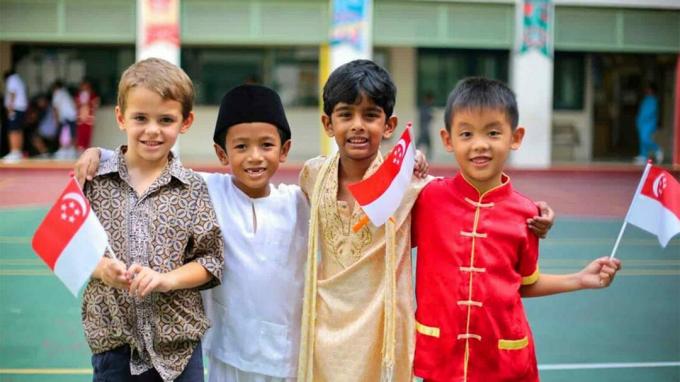
Friend, actually, what is a multicultural society like? According to Van Den Berghe, there are 6 characteristics possessed by a multicultural society.
What is it, curious? Come on, Let's look carefully at the explanation below!
1. The occurrence of segmentation into various forms of social groups
The diversity that exists in people's lives can trigger people to create certain groups or groups based on with the same identity so that later it will produce different sub-cultures between one group and another other.
For example, on the island of Java there are Sundanese, Javanese, and Madurese, where the three tribes live in harmony on the island of Java and have different cultures.
2. Has a division of social structure into non-complementary institutions.
Different societies make the structure of society will experience various differences between one society and another.
We can see the differences in the structure of society through various social institutions that are not complementary in nature.
As an example, in Indonesian religious institutions that cover several religions and have different structures.
Some of these religious institutions do not complement each other because they have different characteristics or characteristics of community (religious) diversity.
3. Lack of developing consensus (mutual agreement).
These different societies have their own basic values or standards and also different norms and are usually manifested through behavior in these communities.
This is because the characteristics or characteristics of a diverse community are then harmonized with the state of the physical and social environment.
This is because the different circumstances or conditions of the community will create a collective agreement that tends to be difficult to develop.
4. There are relatively frequent conflicts.
The diversity that exists within the community is one of the main triggers for conflict. The conflicts that take place are very diverse, ranging from conflicts between individuals to conflicts between groups.
This can be caused by the lack of tolerance between each other, either from the individual or from the group concerned.
5. Relatively speaking, social integration grows because of coercion and interdependence in the economy.
If a plural society can be well coordinated, then social integration will be very likely to take place.
However, if the social integration that exists in society arises because there is no awareness, but because of coercion from outside the self or outside the group, social integration will not occur occur.
Example: regulations regarding anti-discrimination on the use of public facilities.
Not only that, people who have dependence in the economic field can also encourage integration because of this need.
Example: an individual who works for a company or another individual who makes him/her have to obey all the rules that are made.
The ongoing state of compliance and integration as above will arise because there are regulations that is binding on individuals in carrying out their work and it serves to meet needs the economy.
6. There is political domination
Certain groups or groups in a multicultural society can have political power that can be used to regulate other groups.
We can call this a form of domination (domination) of one group over another group that does not have political power.
According to the Big Indonesian Dictionary or KBBI, multiculturalism is a symptom that exists in a person or a society characterized by the habit of using more than one culture.
Characteristics of a multicultural society
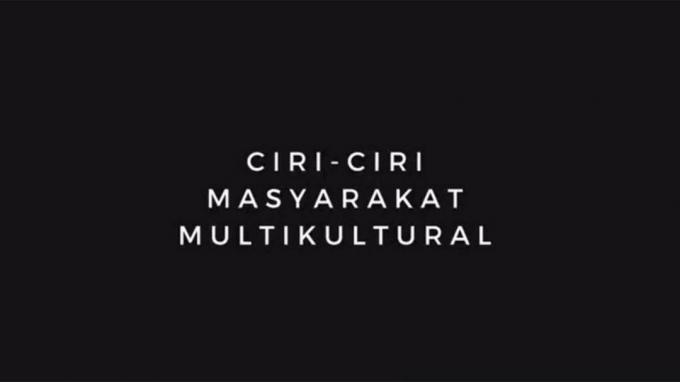
Based on the ideas presented by Pierre L. Van den Berghe who is a cultural expert, a pluralistic or multicultural society has certain characteristics or characteristics.
The following are some of the characteristics of a pluralistic or multicultural society as presented by Pierre L. Van den Berghe:
- A pluralistic society has group members who are segmented into different subcultures.
- A plural society has a social structure that is divided into non-complementary institutions.
- A pluralistic society is less pressing in terms of developing consensus on the basic values of its members as a whole.
- Plural societies are relatively more likely to experience conflicts between groups.
- Plural society relatively creates social integration by force or coercion or because there is a sense of interdependence in the economic field.
- A pluralistic society exists under the domination of one group over another.
From the characteristics above, we can summarize again that a plural society has the following characteristics:
- Have more than one cultural structure.
- The basic value is a mutual agreement or agreement that is difficult to develop.
- Social structure is non-complementary
- There is economic, political and socio-cultural domination.
- The integration process takes place at a slow time.
- There is a social conflict that smells of SARA.
The Nature of Multicultural Society
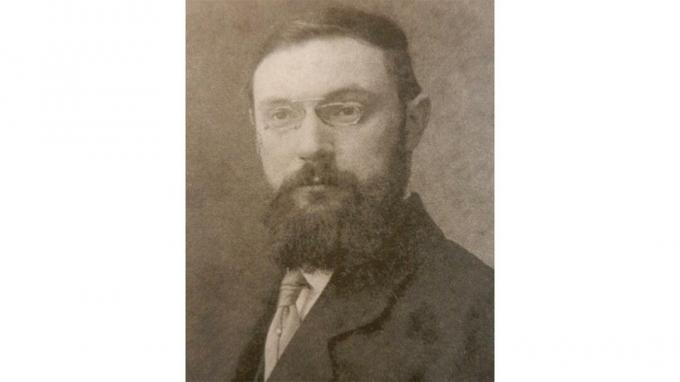
According to the idea conveyed by Pierre L. Van den Berghe, Multicultural society has the following characteristics:
- Passing through a period of segmentation into different subcultural groups from one another.
- Has a social structure framework that is divided into non-complementary institutions.
- Less emphasis on consensus among its members on various basic values.
- Relatively often experience disputes or conflicts between one group and another.
- Relatively speaking, the growth of coercive (coercive) and related social integration will depend on each other in the economic field.
- There is a political majority by one group over another.
Types of Multicultural Society
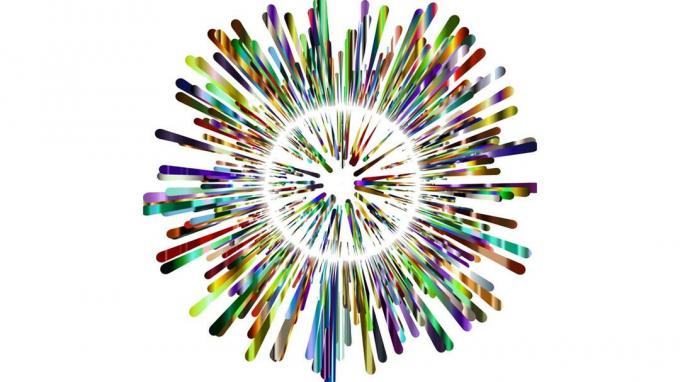
Based on the development trend and also the practice of multiculturalism, multicultural society is divided into several types, including the following:
Isolationist Multiculturalism
Isolationist multiculturalism is a pluralistic group or group of people who run their lives autonomously with minimal interaction between groups.
Accommodative Multiculturalism
Accommodative multiculturalism is one type of society that has a dominant culture that makes certain adjustments to minorities.
This society will give the right of freedom to every minority in order to maintain what is their culture.
Autonomous Multicultural
Autonomous multiculturalism is one type of multicultural society that lives together and tries to create their cultural equality.
Critical Or Interactive Multicultural
Critical or interactive multicultural is a type of society that does not focus on autonomous cultural life, but put more emphasis on creating a shared culture that reflects as well as emphasizes the perspectives of each group Public.
Cosmopolitan Multiculturalism
Cosmopolitan multiculturalism is one type of society that seeks to eliminate boundaries culture in their lives so that a society that is not bound by culture will be created certain.
Factors for the Formation of a Multicultural Society
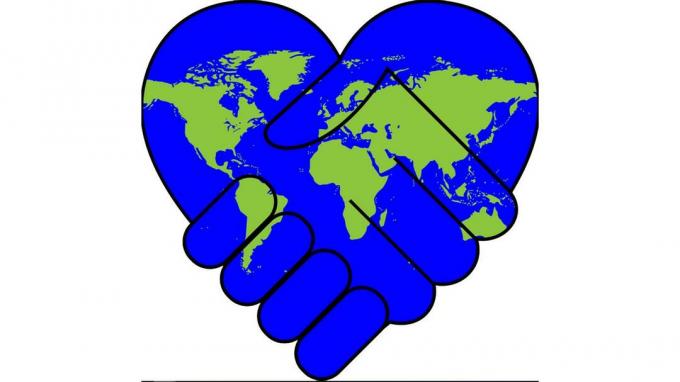
The following are several factors that can influence the formation of a multicultural society, including the following:
Historical Factor
Our country has abundant natural resources (SDA). No wonder there are many foreign countries who come because they want to control natural resources in Indonesia, for example the Netherlands, England, Portugal and Japan.
This foreign nation colonized and settled in Indonesia for quite a long time, not even a few who eventually married in Indonesia.
Circumstances like this will bring up the richness of culture and taste in Indonesia that will form a multicultural society.
Foreign Cultural Influence Factors
Globalization is an important process in the spread of culture in the world, and Indonesia is no exception.
This is because the openness of the Indonesian people is easier to accept the influence of foreign culture even though there must be a clash or friction with the local culture.
Geographical Factor
As we know, Indonesia is flanked by two continents and also two oceans, geographical conditions like this make Indonesia an international trade route.
Therefore, many foreign countries come to Indonesia to trade, for example Arabs, Chinese, Indians and others.
Conditions like this will add to the foreign culture that enters Indonesia so that a multicultural society is formed.
Physical And Geological Factors
When viewed from the geological structure, Indonesia is located between three plates, namely the Asian, Australian and Pacific plates.
Therefore, Indonesia as an archipelagic country has three geological types, namely Asiatic, Australian and Transitional types.
The life of people who live on an island is certainly different from the life of people on other islands.
In general, people who live on small islands will find it difficult to get resources. It is different with people who live on big islands. This will also make the culture on each island different.
Religion Factor
So far, religion has helped shape the interactions that take place between individuals in a life order.
Religion is also a sign or symbol as well as history that strengthens an individual based on the rules according to the teachings in the holy book.
Indonesia itself has people with different characteristics, both in terms of religion and beliefs, so that it will form a multicultural society.
Climate Factor
Various geographical, climatic and weather conditions can affect people's behavior patterns in adjusting or adapting to existing conditions or conditions.
Racial Diversity Factor
Race is a classification system to classify or classify humans based on physical elements, geographical origins and others.
Racial differences are also a factor in the emergence of a multicultural society.
Multicultural Society in Indonesia
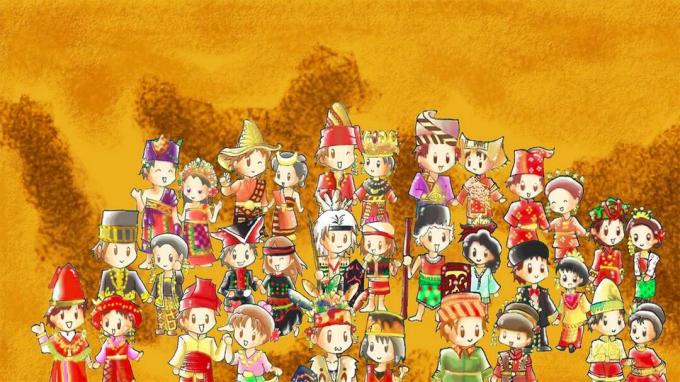
As we have explained above, the Indonesian people have a very rich diversity, ranging from culture, nation, race, ethnicity, religion and customs are none other than the main capital in the formation of society multicultural.
1. Judging from the impact of the existence of a multicultural society in Indonesia
a. Race Diversity.
Race is motivated by the similarity of characteristics or physical characteristics inherent in a person that distinguishes one person from another.
The three races that we will discuss are as follows:
1. Mongoloid Race
The Mongoloid race has the following characteristics:
- Brown skin
- Straight hair
- Little body hair
- Slanted eyes
- Example: Javanese and Chinese
2. Caucasoid Race
The Caucasoid race has the following characteristics:
- Pointed nose
- white skin
- Blonde or brown hair
- Straight eyelids
- Example: people of Portuguese descent in Aceh
3. Negroid taste
Negroid race has the following characteristics:
- Curly hair
- Black skin
- Thick lips and straight eyelids
- Example: Papuans,
b. Ethnic diversity
In Indonesia, we find many ethnic diversity. Language tribes that are characterized by regional similarities, languages, and customs are also often referred to as ethnicities which form a multicultural society.
Example: Sundanese, Batak, Javanese, Dayak, Balinese, and others,
c. Group diversity
Groups with a background in common goals or interests, while in Indonesia it consists of a diversity of groups or groups that make up a multicultural society.
Example: Officials Group, Entrepreneurs Group, XYZ Party, and others.
d. Diversity of religions and beliefs
Religion is based on what is conveyed by God to humans in the form of a book which is a guide for human life in social life, and in relation to God.
In Indonesia, there are several recognized religions, including: Islam, Christianity, Catholicism, Hinduism and Buddhism.
Besides that, understanding or belief is also developed based on the meaning of human life to the universe which produces various understandings in the form of philosophy, animism, dynamism.
2. Characteristics of multicultural society in Indonesia
Conflicts occur due to disputes or differences that we can see from multicultural societies, including those in Indonesia.
We often see this in regional or urban conflicts.
Indonesian society can be called a rudimentary, multicultural society, we can see this through several things below:
- There is still dominance in one group over another.
- The existing social structure favors the dominant party.
- Social conflicts that are born are still often colored by acts of violence.
Problems that arise in the life of a multicultural society are as follows:
a. Cultural Problems
1. Excessive loyalty
Self-interest or group self-interest excessively or blindly, which will result in hampering union with other groups.
2. Ethnocentric
Views or assumptions that despise the culture that comes from other groups.
3. Exclusivism
Reluctance or unwillingness to interact with other groups. This will create a closed attitude or system.
b. Structural Problems
In general, this is related to political and economic conditions. Undemocratic political conditions will make people in the weak economy increasingly cornered and the government is authoritarian.
While. Capitalistic government structures tend to create entrepreneurs who have collusive relationships with officials.
And in a society that has a democratic system with a healthy economy, this can be suppressed and can even result in National Integration.
Thus a brief review of multicultural society, hopefully it can help your learning activities. Thank you for visiting :).
